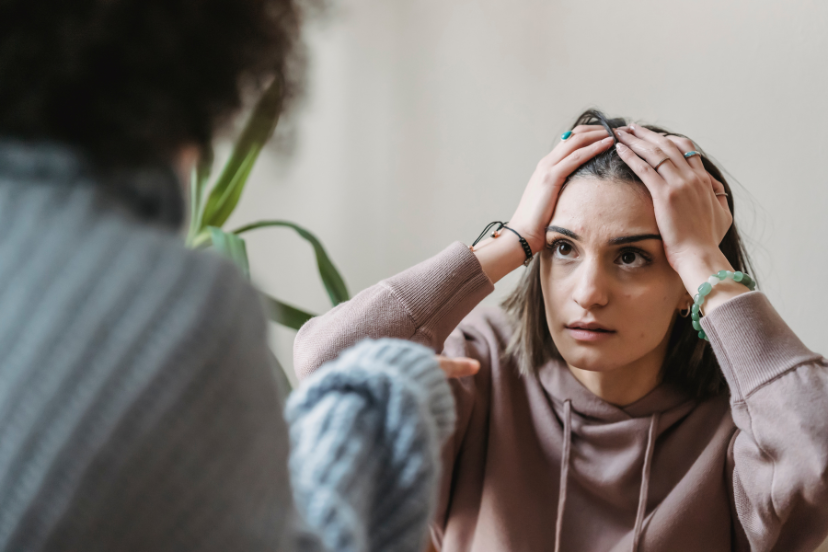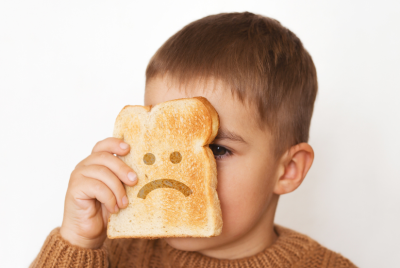Untangling the Link Between Gluten and Anxiety
Introduction
In a world where wellness trends come and go, one topic continues to spark interest and concern: the connection between gluten and anxiety. While gluten intolerance and its physical symptoms are well-documented, the impact of gluten on mental health, particularly anxiety, remains a subject of debate and intrigue. In this article, we delve into the latest research, expert opinions, and practical insights to shed light on this complex relationship.
What Does the Research Say?
Understanding the link between these condition requires a deep dive into scientific studies and clinical observations. While conclusive evidence is still evolving, several key findings offer valuable insights into this phenomenon.
The Gut-Brain Connection: A Crucial Link?
Could there be a direct line of communication between our gut and brain when it comes to anxiety? Emerging research suggests that the health of our gut microbiome plays a pivotal role in influencing our mental well-being.
Gluten Sensitivity vs. Celiac Disease: Is There a Difference?
Distinguishing between gluten sensitivity and celiac disease is essential in understanding their respective impacts on anxiety levels. While both conditions involve adverse reactions to gluten, they vary significantly in their underlying mechanisms and symptomatology.
Neurological Manifestations of Gluten Sensitivity: Breaking Down the Effects
Beyond gastrointestinal discomfort, gluten sensitivity can manifest in various neurological symptoms, including anxiety, depression, and cognitive disturbances. Exploring these manifestations sheds light on the intricate interplay between gluten and mental health.
Frequently Ask Questions
1. Can gluten consumption directly cause anxiety?
While individual responses may vary, some individuals report experiencing heightened anxiety after consuming gluten-containing foods. However, more research is needed to establish a definitive causal relationship.
2. How soon after consuming gluten can anxiety symptoms manifest?
The onset of this symptoms following gluten consumption can vary widely among individuals. Some may experience immediate reactions, while others may notice a delayed onset, making it challenging to pinpoint causality.
3. Is gluten-free diet effective in alleviating anxiety symptoms?
While anecdotal evidence suggests that adopting a gluten-free diet may lead to improvements in anxiety levels for some individuals, scientific studies on this specific aspect remain limited and inconclusive.
4. Are there other dietary factors that can exacerbate anxiety in gluten-sensitive individuals?
In addition to gluten, certain dietary components, such as caffeine, sugar, and processed foods, may exacerbate anxiety symptoms in this kind of condition. Adopting a holistic approach to dietary modifications may yield better outcomes.
5. Can anxiety be a symptom of undiagnosed celiac disease?
Yes, anxiety can manifest as a symptom of undiagnosed celiac disease, alongside other gastrointestinal and neurological manifestations. Seeking medical evaluation and proper diagnostic testing is crucial for accurate diagnosis and management.
6. How can I determine if gluten is contributing to my anxiety?
Keeping a detailed food diary, tracking symptoms, and consulting with healthcare professionals can help identify patterns and potential triggers. Experimenting with a gluten elimination diet under medical supervision may also provide valuable insights.
Conclusion
As our understanding of the intricate relationship between gluten and anxiety continues to evolve, one thing remains clear: individual experiences and responses vary widely. While some may find relief through dietary modifications, others may not experience significant changes. Ultimately, prioritizing overall health and well-being, along with seeking personalized medical advice, is key in navigating this complex terrain.
In conclusion, the connection between this condition is a multifaceted issue that warrants further exploration and understanding. By staying informed, seeking professional guidance, and adopting a mindful approach to diet and lifestyle, individuals can empower themselves to make informed choices that support their mental and physical well-being.




